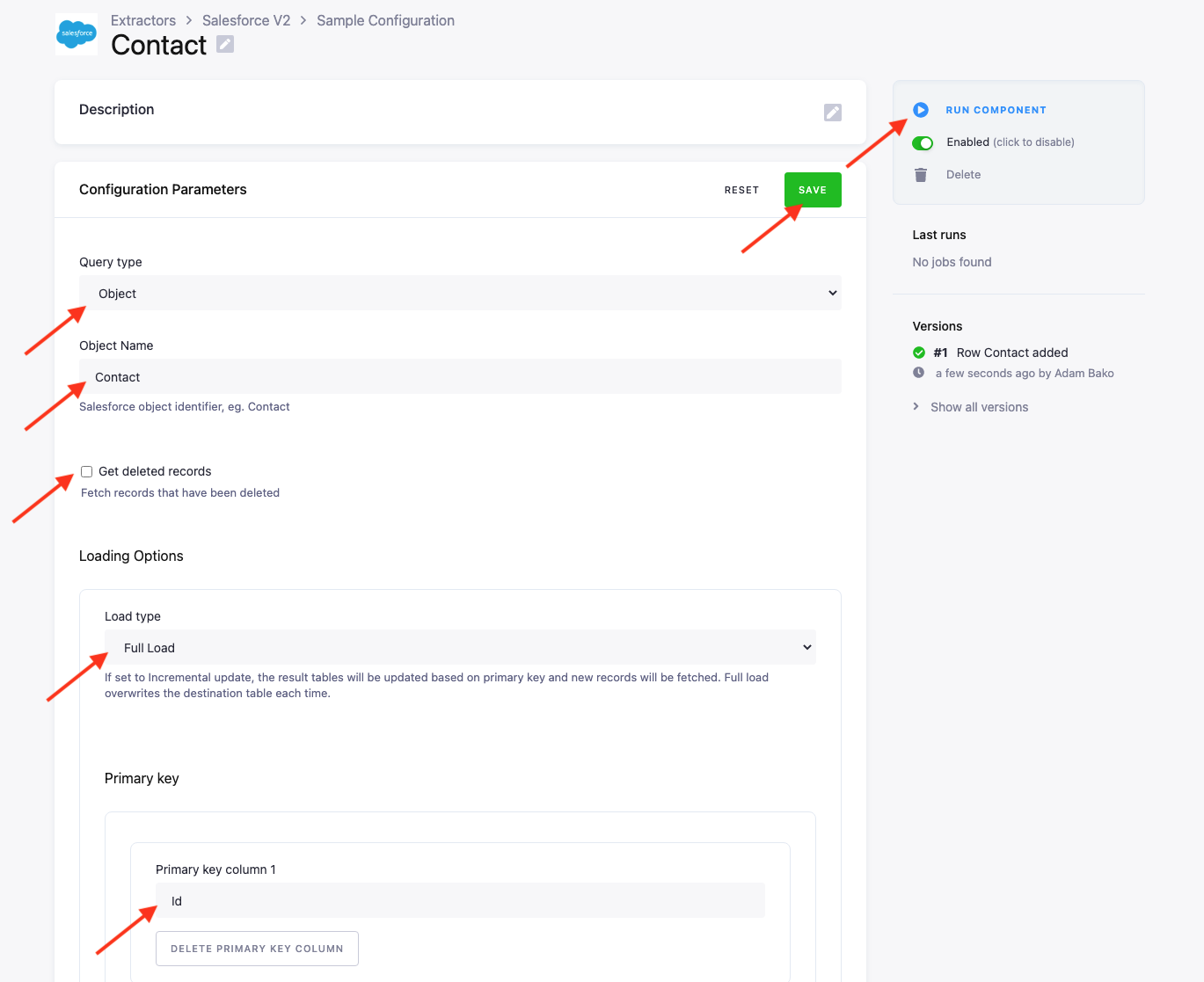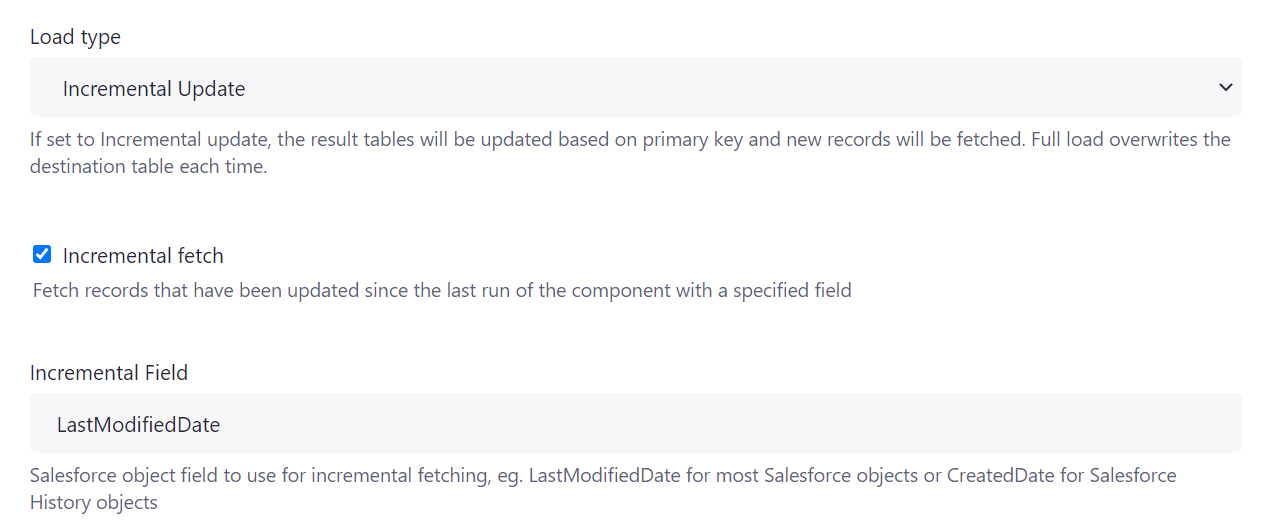Salesforce
This data source connector allows you to import data from Salesforce via the Bulk API. Data can be fetched in two ways: by running a specified SOQL query, or by selecting a Salesforce object and getting all data from that object.
Configuration
Create a new configuration of the Salesforce V2 connector.
To configure this connector, you need to provide a username, password, and an API security token. Then select if you want to get data from your sandbox or from the production environment.

After this you can configure individual queries or objects in the row based configuration.

In the row configuration select either Query or Object and use the corresponding text input to input a single query or
object. Then select if you wish to fetch deleted records by checking the checkbox. Finally, set the loading type to either Full or
Incremental based on your use case. In the incremental update, you can also set the incremental fetching option.
Incremental fetching allows you to select a field in Salesforce for example LastModifiedDate and fetch records that have been
modified since the last run of the component. LastModifiedDate is the default field, but you can also specify any field in Salesforce
containing a timestamp.
Load Type
Select one of the following two load types:
Incremental Update– updates the result tables based on the primary key set in the configuration.Full Load– overwrites the destination table each time.
Incremental Fetching
The option available in Incremental Update mode allows you to fetch records that have been modified since the
last run of the component. You need to specify a date field in Salesforce that will be used for this (by default LastModifiedDate).
The LastModifiedDate matches most of the Salesforce objects but there are some objects such as *History that do not contain this field
and only the CreatedDate field may be used. This also varies per custom Salesforce setup.

Primary Key
A primary key can be defined to enable deduplication and “upserts” while importing to Storage. It defaults to Id, which
will be valid in the vast majority of cases. However, if your custom implementation does not define this column or you would
like to have your destination table without any, you can modify it.
Limitations
Due to the data source connector utilizing the Salesforce Bulk API, it will not be possible to run all types of queries.
The Bulk API does not support queries with any of the following:
- GROUP BY, OFFSET, or TYPEOF clauses
- Aggregate functions such as COUNT()
- Date functions in GROUP BY clauses (date functions in WHERE clauses are supported)
- Compound address fields or compound geolocations fields
